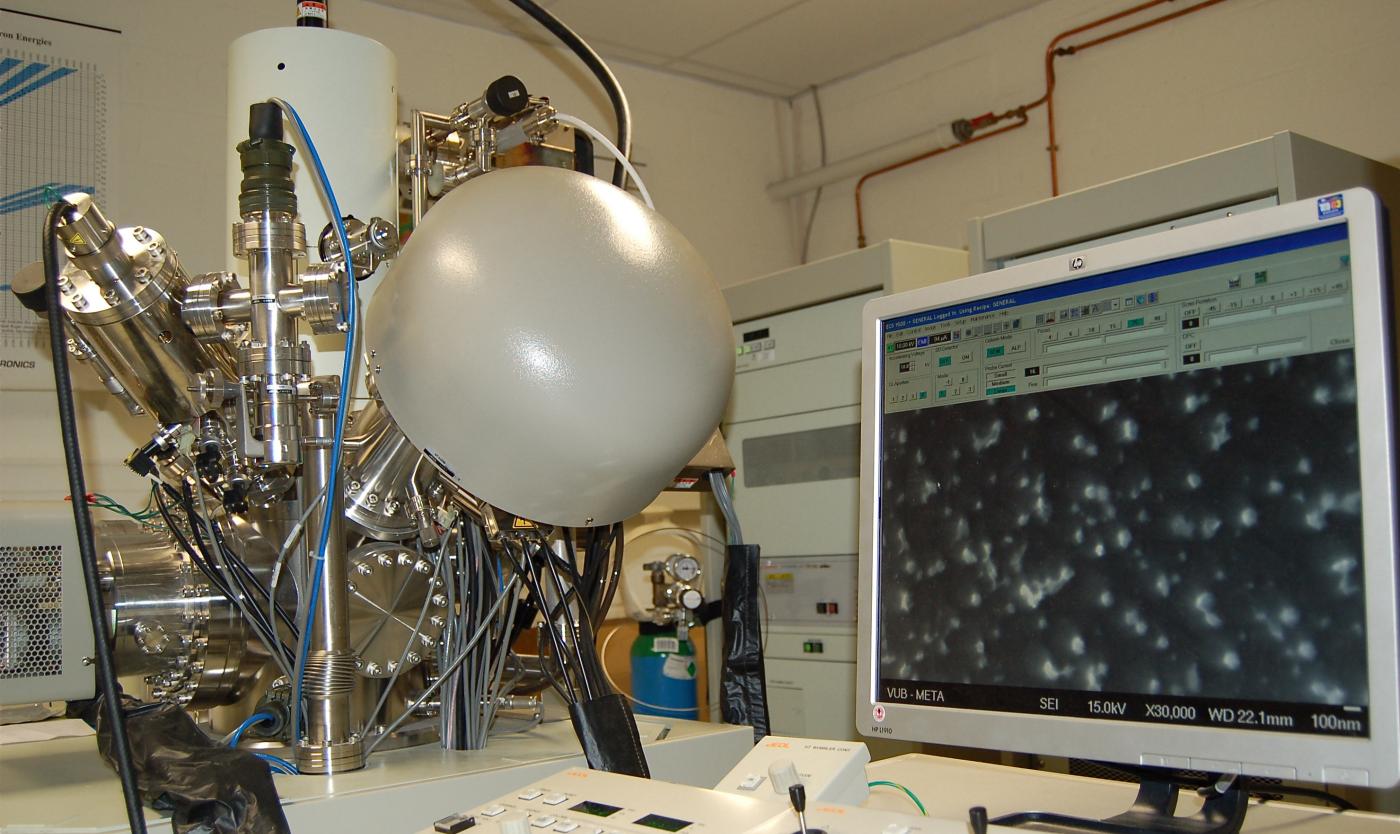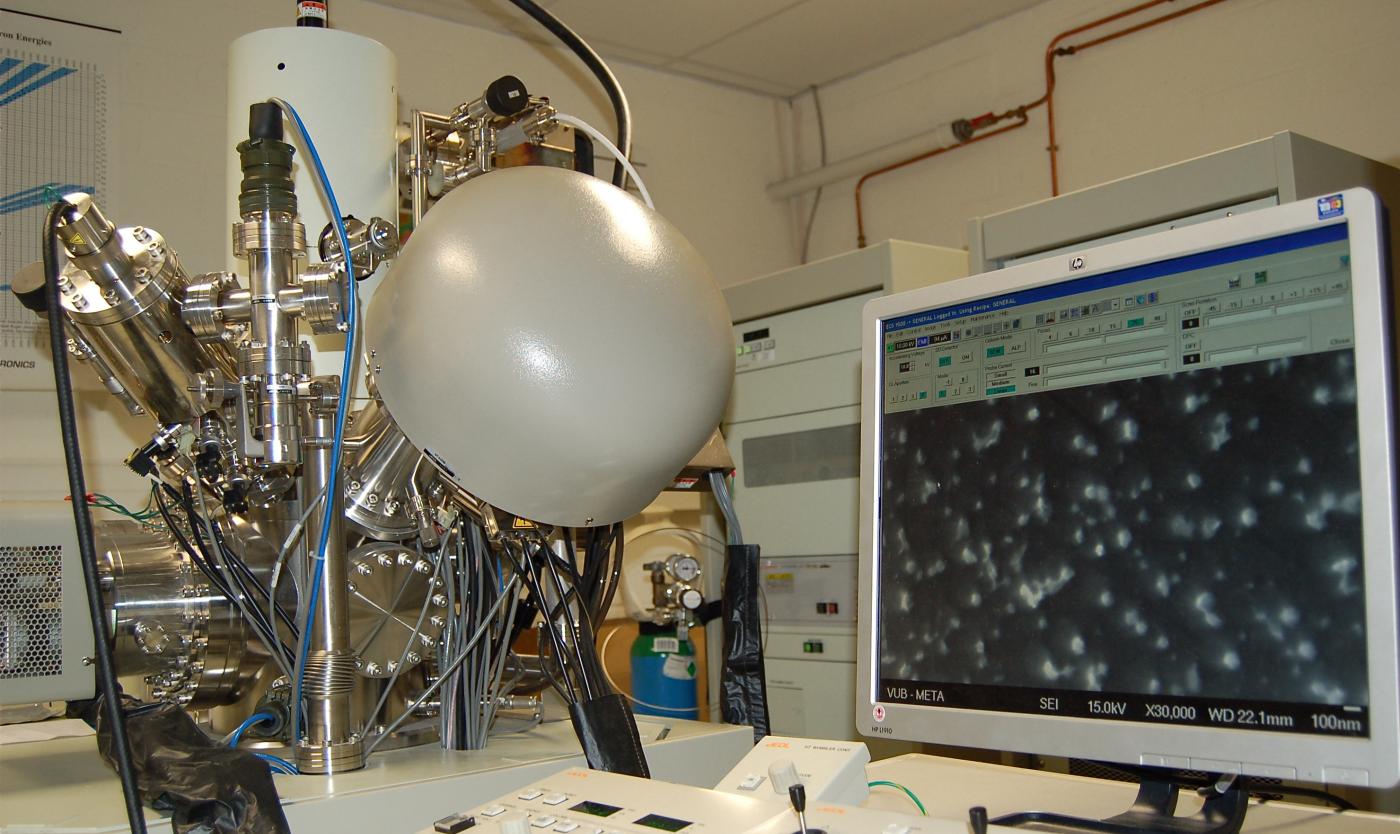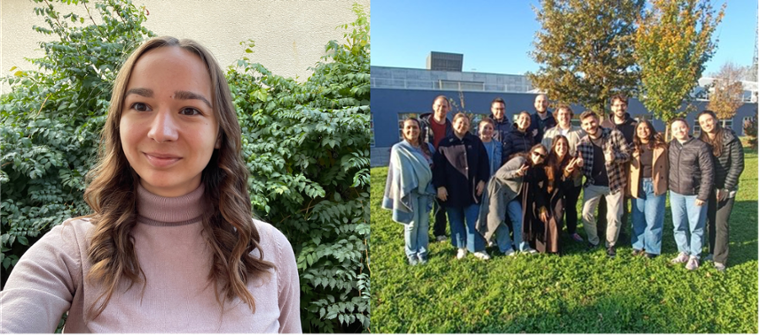Vice-rector Research at the VUB Pieter Ballon: "Research needs society needs research. This is why VUB invests structurally in the societal impact of its research groups".


VUB Core facilities and infrastructure platforms
The Vrije Universiteit Brussel (VUB) considers modern research infrastructure a core priority for driving scientific progress. The VUB not only makes its high-quality facilities, such as the Next Generation Sequencing (NGS) facility for genetic research and the Electron Microscopy platform for nanotechnology, available to its own researchers, but also to scientists and companies within its network. By sharing this infrastructure, the VUB promotes collaboration and innovation across various scientific fields, providing everyone with access to cutting-edge technology.
Networks for Societal Impact through Science
Caption: World cancer day at the VUB
Networks for Societal Impact through Science
The Networks for Societal Impact through Science, a new initiative of the Vrije Universiteit Brussel (VUB) Vice Rectorate for Research supports interdisciplinary research networks at VUB that tackle societal challenges. Through five years of funding (110,000 euros annually), these networks strengthen VUB’s impact on society by fostering collaborations and expanding their expertise. These networks exemplify VUB's commitment to societal change through science, creating a lasting impact across key sectors such as urban studies, healthcare, sustainability, mental health, and migration.
More details: https://www.vub.be/en/our-research/our-vision-and-mission/optimal-research-environment/core-facilities-and-infrastructure-platforms
Here are the five NSIS networks that have been awarded:
Brussels Centre for Urban Studies (BCUS), led by professor Bas Van Heur, focuses on urban engagement and societal impact through research on community infrastructures, public space, spatial justice, and urban futures. BCUS serves as a hub for inter- and transdisciplinary research, creating synergies between VUB research groups and non-academic stakeholders.
Painless Lifestyle Network, led by professor Jo Nijs, addresses chronic pain, a global health burden, by combining expertise in lifestyle interventions and pain management. The network develops innovative clinical trials and implementation strategies aimed at improving outcomes for patients with musculoskeletal and cancer-related chronic pain, fostering a shift towards multimodal, personalized treatments.
DESTINY, led by professor Maarten Messagie, is focused on accelerating the transition to a net-zero carbon society. This network unites research groups in energy technologies to develop and showcase sustainable solutions for decarbonization, with the Green Energy Park serving as a living lab for innovation and societal engagement.
PRISM Network, led by professor Imke Baetens, is dedicated to advancing mental health and resilience across the lifespan. By integrating clinical, cognitive, and biological psychology, PRISM develops tailored prevention strategies, innovative assessments, and technology-enhanced interventions to address mental health challenges in youth and older adults.
Brussels Interdisciplinary Research Centre on Migration and Minorities (BIRMM), led by professor Ilke Adam, builds on the success of BIRMM 1.0, enhancing the societal impact of migration research. With a multivocal board of stakeholders, BIRMM 2.0 addresses migration at multiple governance levels, promoting co-created research and science communication to influence policy and public discourse.

